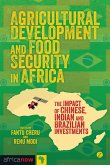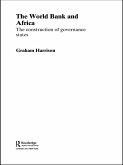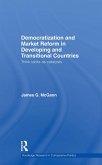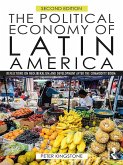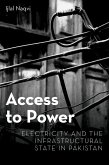Neoliberalism has shaped African development for nearly thirty years. As such, it is not an economic 'shock' or a 'structural adjustment', but rather a historic shift in Africa's development politics and policy. This book explores the ways in which African countries have experienced the neoliberal project, highlighting how this project has gone beyond economic liberalisation and towards a bolder social transformation. As an ideology, neoliberalism projects an end-point not simply of a market economy but of a market society.
After thirty years of projects, aid disbursement, technical assistance, and conditionality, this book maps out the extent to which African states have cleaved to neoliberal directives. It suggests that neoliberal 'progress' in Africa is notably limited in spite of the resources behind it and the lack of alternatives to it.
After thirty years of projects, aid disbursement, technical assistance, and conditionality, this book maps out the extent to which African states have cleaved to neoliberal directives. It suggests that neoliberal 'progress' in Africa is notably limited in spite of the resources behind it and the lack of alternatives to it.




